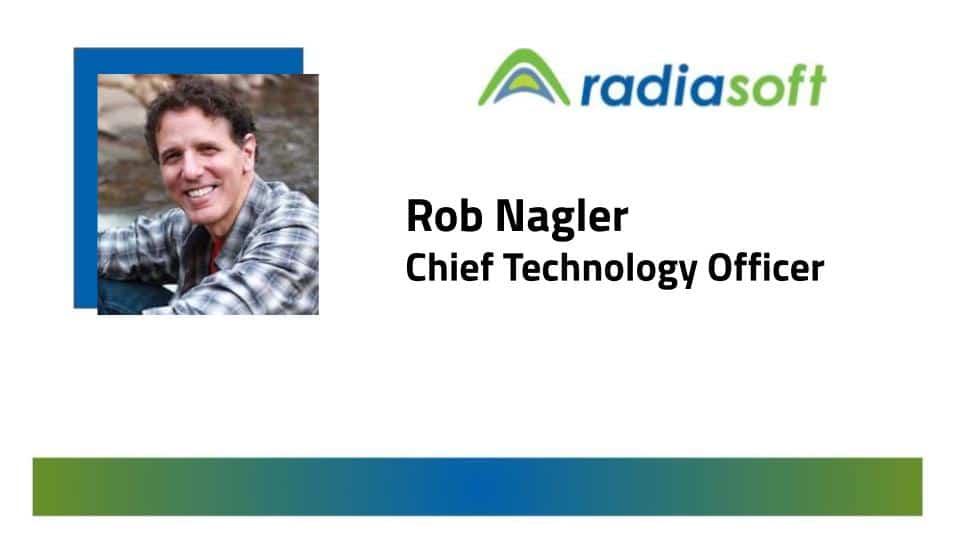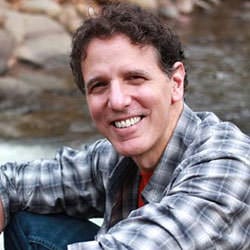
Meet Your CTO: Rob Nagler
Meet the RadiaSoft team in this ongoing Q&A series, where we introduce you to our stellar employees. Learn about their work, their background, and some of the things that make them who they are.
Today, Rob Nagler talks about the strategy of software programming, some interesting projects he’s worked on, and a few of the many companies he’s founded.

What do you do at RadiaSoft?
I help people with software and hardware. The software might be accounting systems or how to use a new tool. I also try to eliminate bottlenecks for the rest of the software team. Programmers should be programming, not dealing with license or hardware issues.
What’s your educational and career background?
I took my first computer course when I was nine years old, back when computers filled up entire rooms. I taught myself how to build electronics and software programs until high school when I took my first Basic and Fortran classes. I got degrees at UCSD and Stanford in computer engineering.
Although my focus is primarily software, I have been involved with hardware throughout my career. I’ve worked for big and small companies, but mostly, I’ve worked at startups, many of which I founded.
What’s the biggest misconception about your field and why?
People think programming is difficult. In many ways it is, but it often comes down to solving simple problems in a structured and specific way. I think the “structured” and “specific” parts are what trips people up. Sometimes they give too explicit instructions, and other times the instructions are too vague. Getting it Goldilocks-right is about taking the time to find the simplest way of talking about a problem. When this happens, the software writes itself.
Where did you grow up?
I grew up in East Meadow, NY. It’s a small town on Long Island with many Levitt homes, where most people would commute by train to work.
Before joining RadiaSoft, what’s the strangest or most interesting job you’ve held?
Over the years I’ve started 15 or so companies. Many of these startups operated concurrently so at times I wore (and still wear) different hats. I’ve had to act as a fiduciary for one company while negotiating with another company I owned.
One of my more fun startups was a nonprofit designed to encourage kids to ride their bikes to school. At one time 50 schools were running the program. Technology was involved: the kids had RFID tags on their bike helmets, and a solar-powered RFID reader was installed at the schools to count them as they arrived.
Who is your favorite scientist from history and why?
While there are interesting historical computer scientists, I prefer thinking about the people I’ve worked with who are not famous such as David Cheriton, Tom Lyon, Paul Moeller, Roger Sumner, and Ion Yadigaroglu. These people are my favorites because of how they influenced me and shaped my career.
Tell us about one of your current projects.
I am working on improving our accounting at RadiaSoft. I like this project because I can solve a problem for people without a lot of complex software. The problem has a lot of moving parts, but the solution is relatively simple and eliminates most of the need for manual entry. Not only is manual entry tedious for people, it’s error prone. Now, we can take our data from our timekeeping system, generate some inputs to Quickbooks, Paychex, and Excel, and eliminate hours and hours of manual entry from one system to another. It makes me happy to solve a direct problem for someone.
What is a talent, secret superpower, or fun fact about yourself that people wouldn’t guess?
Fun fact: I lived in Switzerland for 12 years. I was not the type of person to travel after college. Rather, I just went to work. A friend of a friend needed some help running a software company in Zurich so I hopped on a plane after a couple of phone calls. I had never been to Switzerland before. I didn’t even have a visa, which resulted in a rather sticky situation with the Fremdenpolizei.
What’s your favorite Slack emoji and why?
I don’t like emojis. Bah humbug. I am old fashioned, and I use emoticons. 🙂
What’s something you wish people understood better about RadiaSoft?
We are a small company with many different projects, which can be quite complicated to manage. While our project deliverable is usually a research paper, we try to make sure we also add some features to our flagship product, Sirepo. Doing this benefits the larger scientific community because Sirepo is open source. In this way, we’ve been able to grow Sirepo from a simple application to the rich, multi-faceted scientific gateway it is today.